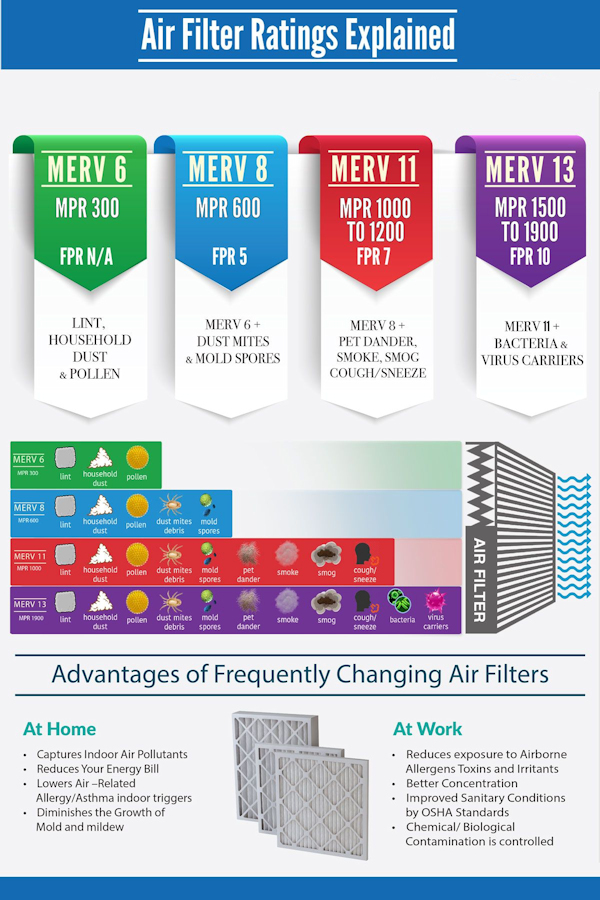HEATER / FURNACE PRE-SEASON SPECIAL only $109/$89
Offer good October through mid-November* PLEASE NOTE: to qualify for multiple unit pricing, the additional unit must be next to, or within 10 feet of the first unit and owned by the same person - not on separate properties.
 Furnace
not feeling like it's normal happy self? It may be time to get
your furnace serviced and ready for the cold winter months ahead. Call
for your appointment now
to avoid the last minute rush, and possibly a long, cold wait. Our special
pricing is available mid-September through mid-November, unless
inclement weather occurs. If we do experience unusual weather and are
unable to send out a technician, we may choose to extend this offer.
Keep in mind for the safety of our technicians, we do not work on
electrical components on the roof, in the rain. If you're ever unsure,
don't hesitate to call and ask. We'll do whatever we can to get you
taken care of because your comfort is our concern.
Furnace
not feeling like it's normal happy self? It may be time to get
your furnace serviced and ready for the cold winter months ahead. Call
for your appointment now
to avoid the last minute rush, and possibly a long, cold wait. Our special
pricing is available mid-September through mid-November, unless
inclement weather occurs. If we do experience unusual weather and are
unable to send out a technician, we may choose to extend this offer.
Keep in mind for the safety of our technicians, we do not work on
electrical components on the roof, in the rain. If you're ever unsure,
don't hesitate to call and ask. We'll do whatever we can to get you
taken care of because your comfort is our concern.
- Check Ignition Sequence
- Check Pilot Safety Controls
- Check and Test all other Safety Controls
- Check for Worn Parts
- Check, Clean, Adjust, & Lubricate (where needed) all moving parts including motors and blower mechanism
- Check & Tighten all Gas Connections
- Check Fan Belts for Wear or Cracks
- Check & Tighten Electrical Connections
- Check for Clean Combustion
- Check heater exchanger if accessible
- Check for Flame Disturbance (This is indicative of a cracked heat exchanger)
- Check for Overall Proper Operation
- NO SCARE TACTICS!! If your unit is on the roof, the possibility of any kind of leak permeating the house and causing harm or damage is minimal at best - but it still needs to be addressed.
- Don't delay - CALL NOW!!
If your heater is inside the attic or garage, then we can work on it in any weather conditions, and after dark. However, if you have a rooftop combination heating and air conditioning unit, most often referred to as a dual-pak, we can not work on it in the rain or after dark except under rare, or special circumstances.
So, call today and make your heater, and your family cozy and happy. 
AIR CONDITIONING PRE-SEASON SPECIAL only $109/$89
Special price good March through mid-May PLEASE NOTE: to qualify for multiple unit pricing, the additional unit must be next to, or within 10 feet of the first unit and owned by the same person - not on separate properties.
 CALL IN FEB & MARCH TO MAKE AN APPOINTMENT BEFORE TRIPLE DIGITS HIT - BECAUSE THEY WILL SOONER THAN YOU THINK! KEEP IN MIND WE WILL BE CLOSED MAY 1 TO MAY 17 FOR A VACATION THEN INVENTORY RESTOCK BEFORE THE SUMMER SLAM!!
CALL IN FEB & MARCH TO MAKE AN APPOINTMENT BEFORE TRIPLE DIGITS HIT - BECAUSE THEY WILL SOONER THAN YOU THINK! KEEP IN MIND WE WILL BE CLOSED MAY 1 TO MAY 17 FOR A VACATION THEN INVENTORY RESTOCK BEFORE THE SUMMER SLAM!!
 We can’t stress enough how important it is to call and schedule your
appointment BEFORE IT GETS HOT!! Every year we have to tell many hot and
uncomfortable people "I'm sorry, but we are booked up for a week." And,
many times those same people will call back later saying “I’ve tried
everyone in the book, and they are all booked up for 2 weeks! Please,
put me on your schedule.” Most go on to say, "AND, put me on
your auto call list so I can get this done early next year and take
advantage of your special savings, too!" It’s really worth the quick
call to us. You'll not only save frustration, but money as well.
We can’t stress enough how important it is to call and schedule your
appointment BEFORE IT GETS HOT!! Every year we have to tell many hot and
uncomfortable people "I'm sorry, but we are booked up for a week." And,
many times those same people will call back later saying “I’ve tried
everyone in the book, and they are all booked up for 2 weeks! Please,
put me on your schedule.” Most go on to say, "AND, put me on
your auto call list so I can get this done early next year and take
advantage of your special savings, too!" It’s really worth the quick
call to us. You'll not only save frustration, but money as well.
- Monitor refrigerant pressure, check freon levels
- Monitor A/C cycles
- Test start up capabilities
- Measure voltage and amperage to system
- Measure temperature variance
- Check and test all safety controls
- Check and tighten all electrical connections
- Check, clean, adjust, and lubricate (where needed) all moving parts including motors and blower mechanism
- Check fan belts for wear or cracks (on dual-pak units only)
- Check for worn parts
- Clean evaporator coil if accessible
- Clean condenser coil & test for air flow blockage*
- Clean condensate drain line
- Check for overall proper operation

We prefer it be about 72* out and not raining to perform your pre-season checkup. *chemical cleaning is NOT always needed but if it is needed to correct air flow blockage it will be extra. Feel free to ask at the time
**to qualify for multiple unit pricing, the additional unit must be next to, or within 10 feet of the first unit and owned by the same person - not on separate properties.
AIR FILTERS
 Since
there are so many different sizes and types of air filters available,
we couldn't possibly fit them all in our service vehicles so, we ask
that if you are able, please check your air filter before we arrive. If
you are not able to do it yourself, NO PROBLEM! We are happy to be of
assistance to you. When you call for your appointment just let us know
what size filter you need and we'll make sure we have it available on
the truck!
Since
there are so many different sizes and types of air filters available,
we couldn't possibly fit them all in our service vehicles so, we ask
that if you are able, please check your air filter before we arrive. If
you are not able to do it yourself, NO PROBLEM! We are happy to be of
assistance to you. When you call for your appointment just let us know
what size filter you need and we'll make sure we have it available on
the truck!
It is VERY important to change your filter on a regular basis. whether that be monthly or every other month, depending on your personal usage. There is nothing more frustrating than having your unit serviced and then have it breakdown shortly thereafter due to a clogged air filter.
What does "MERV rating" mean?
MERV rating is an acronym for Minimum Efficiency Reporting Value. A MERV rating
tells you, on a scale of 1-16, how effectively your filter traps the
small particles you don't want circulating through your home. The higher
a MERV rating, the tighter the weave and the higher the amount of particles the filter traps.
*NOTE: keep in mind that filters with the higher MERV ratings trap more particulates and therefore clog up quicker so they need to be checked/changed more often so you don't damage your system.

REGULATIONS
As of January 1st 2010 air conditioner manufacturers will no longer be able to build equipment that uses the refrigerant R-22, which has been the standard for residential and commercial units for many, many years. There is no need to panic and think you have to rush out and buy a new unit! R-22 will still be available for many years to come, but the price will no doubtedly increase, and the product will eventually become harder and harder to find. Most units can be converted to the new freon so if you are concerned, please consult an HVAC contractor for an evaluation of your specific system.
For some general information click here: https://tinyurl.com/FreonInfo or go to www.arb.ca.gov or search for California Resources Board.
PORTABLE A/C'S
We do not work on this type of a/c but since we've been getting more and more questions about portable units, we thought we'd provide some helpful info for you.
Portable air conditioners can be a good temperature-control solution in places where HVAC systems are inadequate or nonexistent. Portable A/C units can help keep hard-to-cool areas comfortable for people working or living in them, they can help maintain safe operating temperature for heat-sensitive equipment, and they can be moved from place to place as needed.
There are two basic kinds of portable air conditioner:
- Light-duty portable A/C units which are used primarily in homes, offices and schools—and not in equipment rooms.
- Heavy-duty portable A/C units which are designed for spot cooling industrial facilities, information technology applications and even outdoor cooling.
Light-Duty Portable Air Conditioners
Light-duty portable air conditioners are designed to cool rooms in offices, schools and homes. They're similar to window air conditioners, but they're generally more expensive to buy and to operate. For this reason, light-duty portable air conditioners are most commonly used in places where it isn't possible to install a window AC. Here are some places where portable air conditioners are frequently used:
- In rooms that don't have the right kind of windows. Most window air conditioners can't be used in sliding windows and casement windows that swing outward.
- In buildings that have rules forbidding window air conditioners. For example, some commercial landlords and homeowners' associations may not allow window AC installation.
- In windows that have security bars or features that prevent air conditioner installation.
A common misconception about portable air conditioners is that they can be used without access to a window, but in many cases this is not true. Light-duty portable AC units have an exhaust hose that must be connected to a window or unconditioned space, and some dual-hose models have an intake hose that connects to the window or unconditioned space as well.
Some heavy-duty portable air conditioners are designed to provide spot cooling in large spaces without access to windows for ventilation, but these machines, used in industrial facilities, information technology settings and other special purposes, would not be practical or effective in normal office and residential settings, except in special circumstances. For example, a heavy-duty portable air conditioner might be used to cool an office space when its primary air conditioning system is not working.
Cooling Capacity: ASHRAE vs. SACC
Light-duty portable AC manufacturers often provide two ratings of cooling capacity:
- The ASHRAE rating, which gives cooling capacity in Btu per hour using an older testing standard developed by the American Society of Heating, Refrigerating and Air-Conditioning Engineers.
- The SACC (seasonally adjusted cooling capacity) rating, which gives cooling capacity in British thermal units per hour (BtuH) using a newer, more thorough testing standard that was put in place in 2016.
While both ASHRAE and SACC ratings describe performance in BtuH, the SACC rating will be lower than the ASHRAE rating for the same appliance because of the differences in testing procedure. Many portable air conditioner manufacturers include both the ASHRAE rating and the SACC rating.
While these cooling capacity ratings can be used to compare the power of one portable AC unit to another, they can be misleading when comparing the power of a portable AC unit to that of a window AC unit, even though both will be rated in BtuH. The problem is that different test conditions are used for the two categories of air conditioner. (Energy efficiency test procedures for air conditioners are developed by the Dept. of Energy.) In practice this means that a portable unit rated at 10,000 BtuH may not have the same cooling power as a window unit rated at 10,000 BtuH, for example.
Fortunately, there's an easy way to get around this. When sizing a portable air conditioner, don't rely on sizing charts or formulas designed for window units. Instead, consult the manufacturer's guidance on how much space a specific unit can be expected to cool.
Energy Efficiency: CEER and EER
The combined energy efficiency ratio (CEER) is a measure of a portable air conditioner's cooling output compared to its energy input. Higher CEER is better because it means greater efficiency and less energy use. CEER takes into account the power used when the unit is actively cooling and also when it's in standby mode. The older measure of efficiency is the energy efficiency ratio (EER), which does not take into account the power used when the device is in standby mode.
Heavy-Duty Portable Air Conditioners
Heavy-duty portable air conditioners are sturdily built devices designed to provide easily movable sources of cool air in industrial and commercial buildings. There are two basic kinds of heavy-duty portable air conditioner: air-cooled and water-cooled units.
Air-Cooled Portable Air Conditioners
Heavy-duty air-cooled portable units work basically the same way as light-duty portable air conditioners. They absorb heat and moisture within the space and transfer it out using ventilated air. Their exhaust hoses can be mounted in windows, or they can attach to ductwork above a drop ceiling connecting to the building's return air plenum. In warehouses and high-ceilinged industrial buildings, exhaust chimneys can conduct the heated air toward the top of the building, where ventilation will allow it to escape.
Some units also have nozzles that allow cold air to be aimed at workstations or equipment for spot-cooling purposes.
Water Cooled Portable Air Conditioners
Water-cooled portable units transfer the heat that they absorb to water, rather than air. This water carries the heat away from the space. This is the only kind of portable air conditioner that can be used away from windows, ductwork or other ventilation. However, they must be attached to a water source and drain. Water-cooled portable air conditioners are also generally more efficient than their air-cooled counterparts, and more effective at cooling when the temperature is very high.
Applications for Heavy-Duty Portable Air Conditioners
Industrial and warehouse applications: Portable air conditioners are widely used to cool assembly lines, providing efficient, direct cooling to people working in production and warehouse environments. Portable air conditioners are also useful for cooling industrial equipment, helping to reduce cycle time and prevent premature failure of heat-sensitive equipment in CNC machining, food processing, injection molding, robotics and automated processes.
Information technology applications: Portable air conditioners are widely used to cool sensitive equipment in server rooms, telecom closets, back offices and data centers. Portable air conditioners designed for IT applications often feature advanced remote management tools.
Other common applications for heavy-duty portable air conditioners: Heavy-duty
portable air conditioners are also commonly used for spot cooling in
health care facilities, schools and universities, sports facilities and
temporary structures. ![]()
Frequently Asked Questions
Q: Do portable air conditioners need to be near a window?
A: The short answer is that most of them do. The basic function of any air conditioning system is to remove heat and moisture from the air inside a room or building. Most kinds of AC system, including most portable air conditioners, use ventilated air to send away the unwanted heat and moisture. There are some heavy-duty portable air conditioners designed for operation away from windows, but most portable AC units require an exhaust hose to be attached to a window, sliding door or other building aperture. Without a link to the outside, that hot, wet air has nowhere to go.
Q: What's the difference between ASHRAE and SACC ratings for portable air conditioners?
A: The ASHRAE and SACC ratings are both evaluations of portable AC cooling capacity in BtuH. The SACC rating was introduced in 2016 and is lower than the ASHRAE rating for the same equipment.
More helpful info at https://www.energy.gov/articles/energy-saver-101-infographic-home-cooling
The information contained in this article is intended for general information purposes only and is based on information available as of the initial date of publication. No representation is made that the information or references are complete or remain current. This article is not a substitute for review of current applicable government regulations, industry standards, or other standards specific to your business and/or activities and should not be construed as legal advice or opinion. Readers with specific questions should refer to the applicable standards or consult with an attorney.
*actual dates may vary - it all depends on Mother Nature aka the weather! To service a/c's we prefer it to be at least 72*. To service heaters we just prefer it not be raining - ELECTRICITY AND WATER DO NOT MIX!